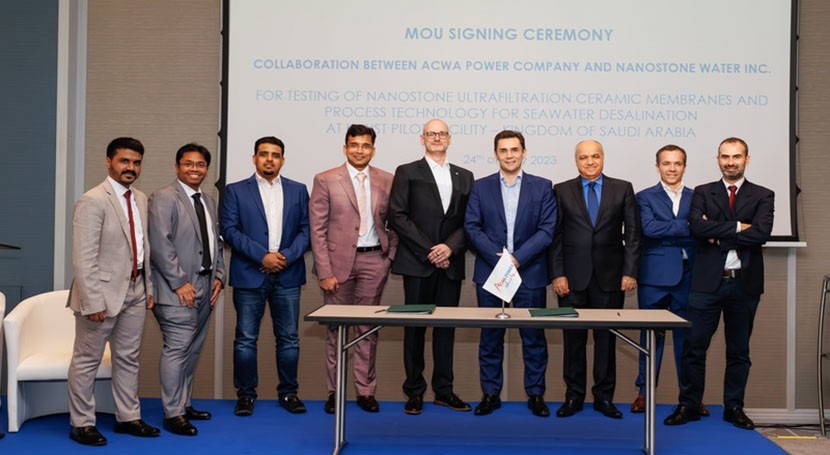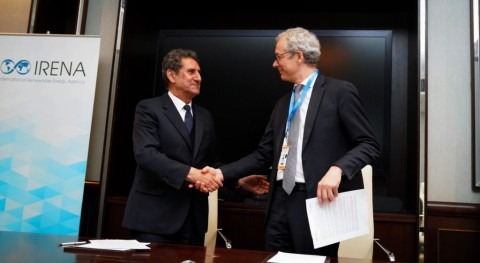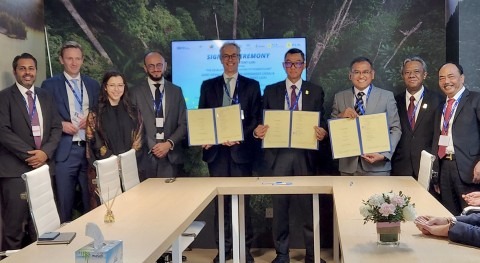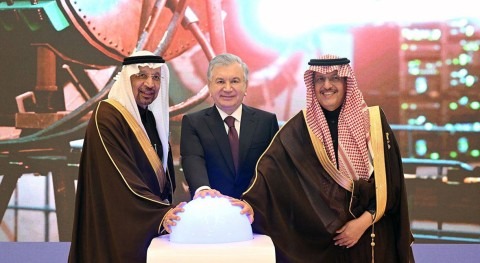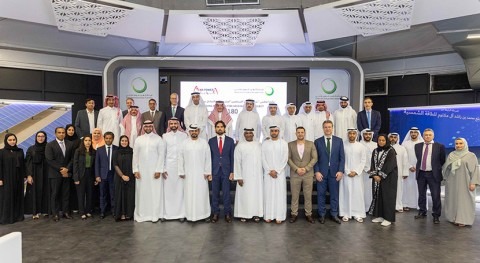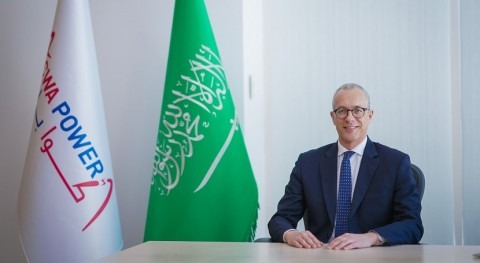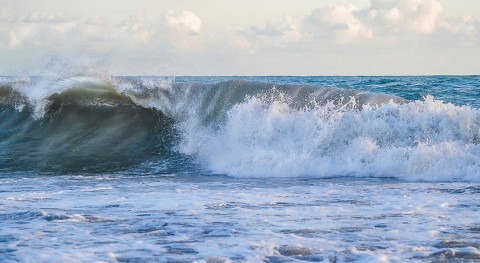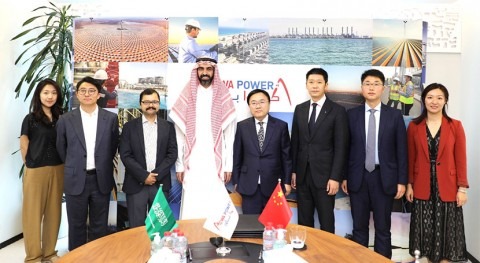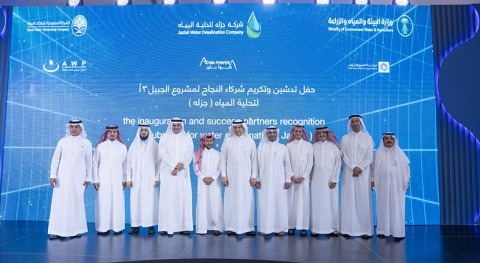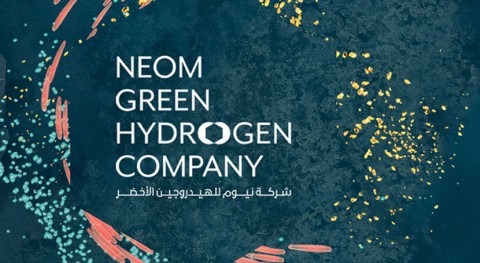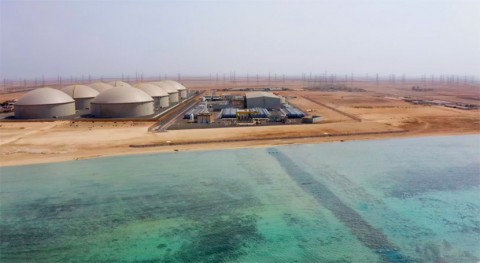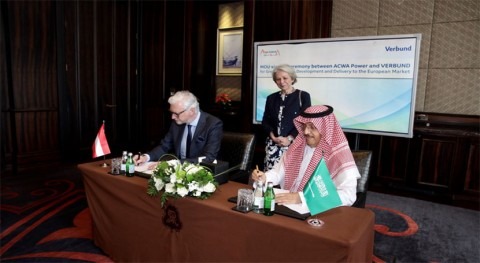ACWA Power, a leading developer, investor, and operator of power generation, water desalination, and green hydrogen plants worldwide, has signed a Memorandum of Understanding with Nanostone Water, a global membrane solutions company, to perform R&D and knowledge transfer at the King Abdullah University of Science and Technology (KAUST), the leading innovation hub in Saudi Arabia, to evaluate Nanostone’s UF ceramic membranes and process technology in seawater desalination applications.
The collaboration between ACWA Power, Nanostone Water Inc. and KAUST further positions Saudi Arabia as a technological and innovation hub in frontier applications for sustainable power, water desalination and green hydrogen, globally. The new partnership pursues applied industry-oriented research to develop a robust pretreatment process for seawater desalination applications with superior protection and an extended lifetime for downstream reverse osmosis membranes.
Thomas Altmann, Executive Vice President of Innovation and New Technology at ACWA Power, and Christian Goebbert, Managing Director, Chief Scientific Officer, and Vice President of Research and Development at Nanostone Water Inc., signed the agreement during the European Desalination Society (EDS) conference in Cyprus. ACWA Power, being a Titanium sponsor, actively supported the conference's mission of promoting "Desalination for the Environment, Clean Water, and Energy."
Marco Arcelli, Chief Executive Officer of ACWA Power, said: As the world’s leading water desalination operator, ACWA Power is a catalyst for innovation in Saudi Arabia. Our contribution to the country goes beyond providing the greenest solutions and lowest costs for water desalination. We are also developing the world’s most advanced engineering and technological expertise by constantly pursuing new solutions to address global water needs. It is imperative that we bring the best of the local and global innovation ecosystem, including research institutions and business partners, to Saudi Arabia, enabling us to develop innovative solutions for our future facilities.
Ceramic membrane is a robust pretreatment technology with the potential for reliable operations, ensuring enhanced and consistent seawater quality
Nanostone's UF technology provides partners and end-users with a robust solution against variations in water quality, including harmful algal blooms, along with reliable delivery of high-quality pretreated water at a lower total cost of ownership. Both ACWA Power and Nanostone Water aim to capitalise on the outcome of this successful collaboration to jointly promote Nanostone's technology for commercial use in world-scale desalination plants throughout the GCC region.
Thomas Altmann, EVP Innovation and New Technology at ACWA Power, said: "Ceramic membrane is a robust pretreatment technology with the potential for reliable operations, ensuring enhanced and consistent seawater quality. It offers long-term benefits for desalination operations, including the potential to reduce energy consumption and the carbon footprint of desalination plants."
John Ritter, President and Chief Operating Officer of Nanostone, said: "We are delighted to work with ACWA Power to advance the next generation of ceramic membrane and process technology. Through this collaboration, we expect to prove our industry-leading ceramic ultrafiltration technology as an ideal pretreatment solution for seawater desalination."
This significant partnership is driven by the Kingdom of Saudi Arabia's unwavering commitment to advancing sustainable and innovative technologies. It is further propelled by the unique environment that KAUST provides to its local and global partners of the highest caliber. In alignment with its ongoing efforts to address critical global challenges in energy, water, environment, food, health, and the digital realm, KAUST leverages the research activities of its outstanding facilities, including research centers and core laboratories.
ACWA Power is currently producing desalinated water to meet the water needs of 40 million people daily based on average global consumption per household. Presently, it is responsible for fulfilling an estimated 30% of Saudi Arabia’s total water needs.


